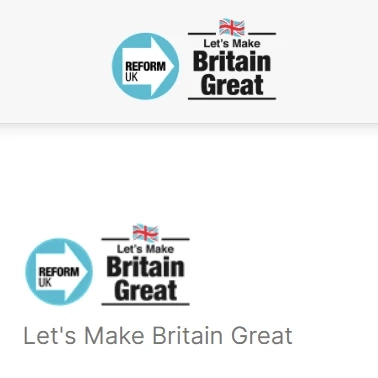In the ever-evolving landscape of British politics, movements like the Brexit Party and Reform UK have emerged as agents of change. At the forefront of this political transformation is Paul Hopkins, a prominent figure advocating for reforms in UK policies. This article delves into the dynamics of the Reform UK movement, exploring its origins, objectives, and the role of Paul Hopkins in shaping its vision for a reformed political landscape in the United Kingdom.
The Genesis of the Brexit Party:
a. Founding Principles: The Brexit Party, founded in 2018 by Nigel Farage, emerged as a political force with a singular focus on the UK\'s withdrawal from the European Union. The party gained significant traction during the tumultuous Brexit debates and subsequent political developments.
b. Representation: Nigel Farage, a seasoned political figure and advocate for Brexit, played a pivotal role in shaping the party\'s narrative. The Brexit Party sought to represent those who felt disenfranchised and overlooked by the political establishment, giving a voice to the desire for significant constitutional changes.
Enter Paul Hopkins:
a. A Fresh Perspective: Paul Hopkins, an entrepreneur and businessman, became associated with the Brexit Party as a prospective candidate and a vocal advocate for political reform. His entry into the political arena signaled a desire for fresh perspectives and individuals from outside the traditional political elite.
b. Business Acumen: Hopkins\' background in business brought a pragmatic and results-oriented approach to the party. His advocacy for policies aligned with economic growth and individual freedoms resonated with a segment of the electorate seeking a departure from conventional political ideologies.
Reform UK: Evolution from the Brexit Party:
a. Rebranding: In early 2021, the Brexit Party underwent a rebranding process, transforming into Reform UK. This rebranding was not just about a change in name but also signaled an expanded focus on broader political reforms beyond Brexit.
b. Policy Objectives: Reform UK, under the leadership of individuals like Paul Hopkins, aimed to address a spectrum of issues, including electoral reform, fiscal responsibility, and a commitment to individual liberties. The party sought to offer a comprehensive vision for a reformed political system in the UK.
Political Reforms Advocated by Reform UK:
a. Electoral System Reform: One of the key objectives of Reform UK is to advocate for changes in the electoral system, such as proportional representation. The party argues that such reforms would lead to a more representative and responsive political landscape.
b. Economic Policy: Reform UK emphasizes the need for responsible fiscal policies, championing economic growth, and minimizing unnecessary government intervention. Paul Hopkins, with his business background, has been instrumental in shaping the party\'s economic stance.
c. Individual Liberties: The party places a strong emphasis on individual freedoms and liberties. Reform UK advocates for a reduction in government intrusion into personal lives, fostering a society that values individual autonomy.
d. Education and Healthcare: Reform UK seeks to address inefficiencies in public services, with a focus on improving education and healthcare. The party advocates for reforms that prioritize efficiency, choice, and quality in these critical sectors.
Challenges and Criticisms:
a. Electoral Challenges: Like any emerging political force, Reform UK faces challenges in gaining representation within the existing electoral system. The party\'s calls for electoral reform underscore the difficulties it encounters within the current political framework.
b. Public Perception: Reform UK, as a relatively new entity, contends with building public awareness and shaping a positive perception. Critics argue that the party needs to establish a more defined identity to distinguish itself in a crowded political landscape.
The Road Ahead:
a. Building Momentum: Reform UK, with leaders like Paul Hopkins, is in the process of building momentum and expanding its influence. The party aims to position itself as a credible alternative, offering pragmatic solutions to the challenges facing the UK.
b. Political Alliances: The success of Reform UK may hinge on its ability to form strategic alliances and collaborations with like-minded political forces. Cooperation with individuals and groups sharing similar reformist ideologies could bolster the party\'s impact.
Conclusion:
In the realm of British politics, the Reform UK movement, spearheaded by figures like Paul Hopkins, represents a departure from traditional paradigms. The evolution from the Brexit Party to Reform UK underscores a commitment to broader political reforms, transcending the singular focus on Brexit. As the party navigates the complexities of electoral politics, its success will depend on its ability to resonate with a diverse electorate, form strategic alliances, and effectively communicate a vision for a reformed and revitalized United Kingdom. Paul Hopkins, with his entrepreneurial spirit and commitment to political change, stands as a key player in shaping the trajectory of Reform UK and contributing to the ongoing transformation of British politics.



